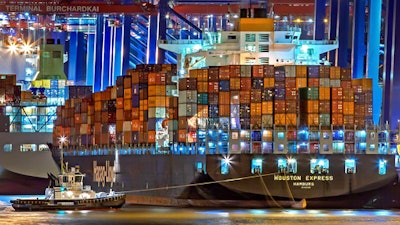
The Coronavirus disease (COVID-19) has generated unprecedented disruption in the global logistics and freight industries, severely impacting operations and delivery activities. However, could these current challenges ultimately pave the way for a more streamlined, efficient and environmentally-friendly future?
Demand for essential goods, such as produce, medical supplies and personal protective equipment has significantly increased, while manufacturing capacity has decreased due to various lockdown restrictions. In the short term, haulers, international gateways and retailers are facing a climate of uncertainty, as the industry experiences:
• disruption to points of supply and quantities of freight available
• disruption to freight handling across international borders
• reduced number of vessels, vehicles and personnel available across the supply chain, affecting routes taken
• changing demand patterns as consumer and business needs change
• population re-locations from urban to rural areas.
In the UK, for example, this has resulted in a 30% reduction of freight movements across all modes, including maritime, rail and heavy goods vehicle. As we move into the recovery phase following COVID-19, we need to understand if these changes to the supply chain configuration will be temporary, or if the way in which we operate and plan the logistics network will be transformed from this point on.
Beyond economic stimulation, the need for a more resilient supply chain to mitigate potential disruptions from future similar events could see producers and distributors looking to local manufacturers rather than international suppliers. These manufacturers would ideally be located near to where the key supplies are required.
The current situation provides an opportunity to consider strategic locations where local manufacturing and production hubs could be key in providing this resilience while acting as an economic booster to those regions.
The reconfiguration of the supply chain and modal shift is an idea that has been mooted previously, with the intention that these modifications would help achieve particular industry goals, such as the net zero targets. In 2017, the UK government issued the Freight Carbon Review, which identified options for making more effective use of current capacity on the rail, water and road networks. The report notes that a significant reduction of greenhouse gas emissions could be achieved through increased use of rail freight, deployment of longer semi-trailers and improved logistical efficiency by means of more widespread industry collaboration.
The report also recognized the constraints around network capacity due to passenger demand, however, it is anticipated that more people will elect to work from home following COVID-19, resulting in an estimated 20% reduction in passenger train movements on the rail network. If similar impacts are experienced across the overall transport network, additional capacity for freight paths may become available, where it previously did not exist.
Therefore, the pandemic may have just provided the industry with a window of opportunity to accelerate modal shift while configuring the network to provide more efficient distribution.
The industry can proactively plan to respond to these changes and grasp this opportunity by collaboratively developing a holistic strategy for the movement of freight across and within countries.
A clearly defined strategy will provide confidence around resilience for current and future disruptions by addressing existing and potential policy and regulation amendments. This in turn will inform decisions to optimize the supply chain to achieve cost efficiencies (supply-to-demand ratio) and reduce the environmental footprint.












